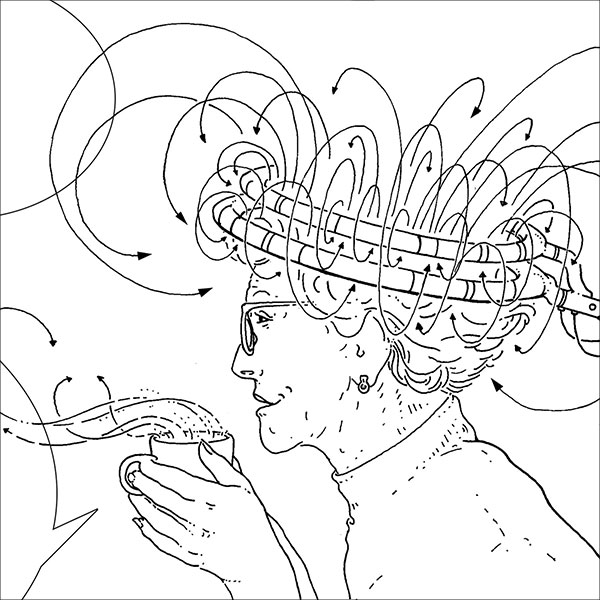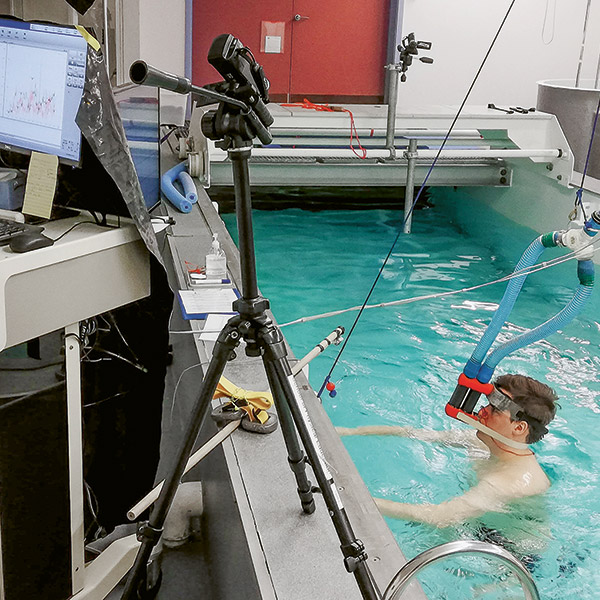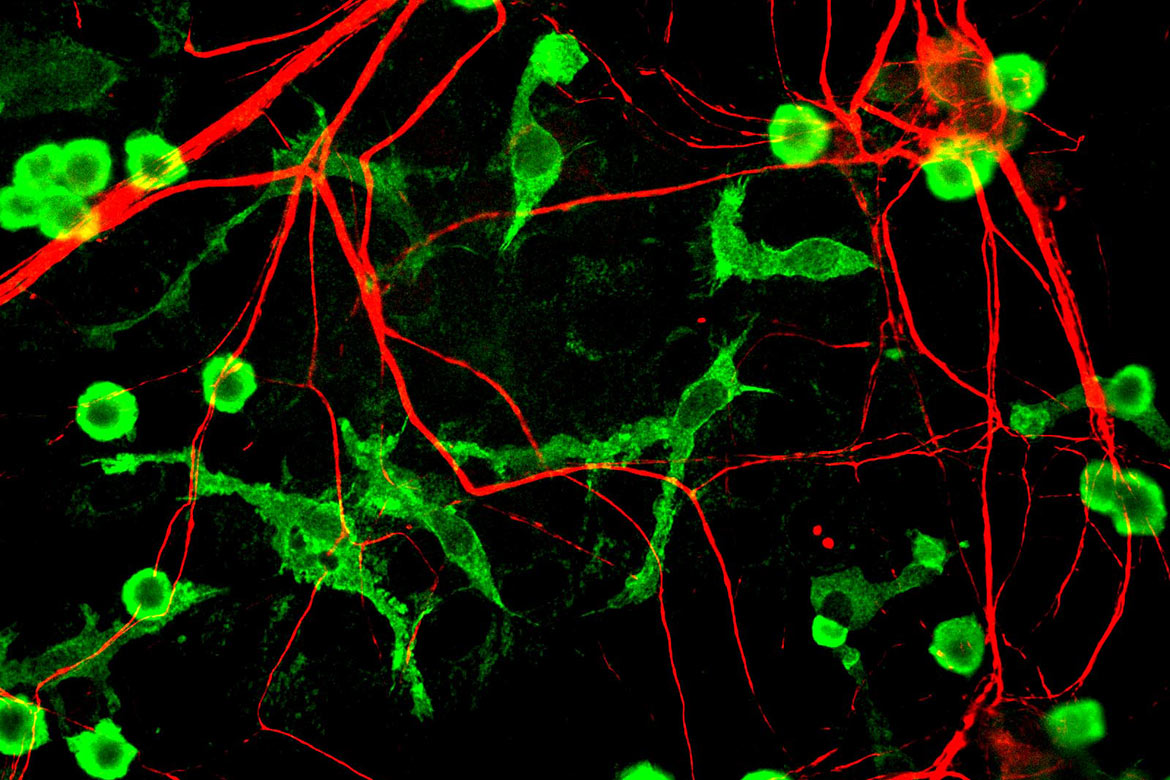Feature: The limits of brain research
“At ten milliamps, I smiled”
Claudia Meier* was one of the first patients in Switzerland to undergo deep brain stimulation for depression. That was six years ago, at the Inselspital in Bern. She’s 52 now. In conversation with Horizons, she looks back on what happened and tells us how she copes today.

Claudia Meier,* 52, was one of the first patients in Switzerland to receive deep brain stimulation for depression. Her dog is helping her to find her way back into life. | Image: Ulrike Meutzner
“Deep brain stimulation can only be considered drastic if you don’t know what I went through before it. I’ve suffered from depression since I was six. I was hospitalised for anorexia when I was 13, and I suffered from alcoholism when I became an adult. I was in and out of a dozen hospitals in the space of 10 years. I had umpteen courses of psychotherapy, I took up pottery and even started knitting (though I hate it). I was constantly being given new medicines that didn’t work. At some point, we’d exhausted everything. Then I went to a clinic where I was given a total of 63 electric shocks. Fifteen would be normal. But what else could I do? I had been through every possible therapy but was still chronically depressed – even worse, I was chronically suicidal. I had four suicide attempts behind me.
“Finally, I summoned up the courage to trawl the Internet – the kind of courage you can only muster if you’re otherwise utterly disillusioned. That’s how I came across deep brain stimulation. At our first consultation, I remember how my neurologist told me that it was only possible in cases of severe illness. And he also said it was difficult to organise, not least because it costs about CHF 250,000, which means that the health insurance company has to agree to it.
“My biggest fear before the operation was that one of the three professors who were involved might still drop out. First, I was given a stereotactic frame around my head. You need this because it enables them to perform the operation with utter precision. It’s really very heavy. The operation lasted seven hours, and I was fully conscious throughout. At the end of it, I said to them: “I don’t care about anything else, but get this frame off me”. You don’t feel anything in your brain itself, but it’s certainly weird when they drill into you. You hear it directly. About halfway through the operation, they wanted to see what happened when they sent electricity through the wires. They increased the current, it went up and up. Then suddenly, at ten milliamps, I smiled. I can’t tell you what a feeling that was! After all those years, I experienced a real smile! Everyone was excited. There was a sense of exhilaration in the operating theatre.
“Afterwards, it was weird for a while. I didn’t know if I was improving or doing badly. And then I had an incident: my neurologist was away for some time and I had to have her boss check the settings. Two days later, I experienced a massive slump. He said it was natural for there to be fluctuations. But when my neurologist came back, she realised that the stimulation setting was wrong.
“I’m afraid things didn’t get better within just a few days. I began to despair and went to Exit (the association for physician-assisted suicide – Ed.). But when we had to fix a specific date, something changed in me. I couldn’t bear the idea of having to take the conscious step of saying my farewells to people a hundred times. From then on I started taking small, positive steps, one at a time. I moved into my own apartment and began using norepinephrine again. This time it kicked in. Now I had the feeling: ‘I need a dog again’. A lot changed when I got my dachshund. I would never say that I’m better now just because of deep brain stimulation. But perhaps it paved the way for other things to have an impact.
“The battery for the stimulation is implanted below my shoulder at the front. Charging it takes about 45 minutes each time, and I get that done in the mornings. On one occasion, I got a slipped disc and had to go into an MRI scanner. So I had to switch off the stimulation. After just a few seconds I was in a very strange state. The opposite of grounded. I don’t know how to categorise the feeling. Deep brain stimulation is something that’s been installed in me for the rest of my life. I sometimes wonder whether there will always be people at the Inselspital who can help me with it.
“It has a funny side effect on me. When I get into a situation that’s very emotional, tears immediately well up in my eyes. That happened just recently when I saw a child in a wheelchair with an adult stroking their head. That never happened to me before! It’s like being heavily pregnant! But I think it’s beautiful. To feel anything at all is beautiful”.
* Not her real name; however, the identity of the interviewee is known to the editors.




